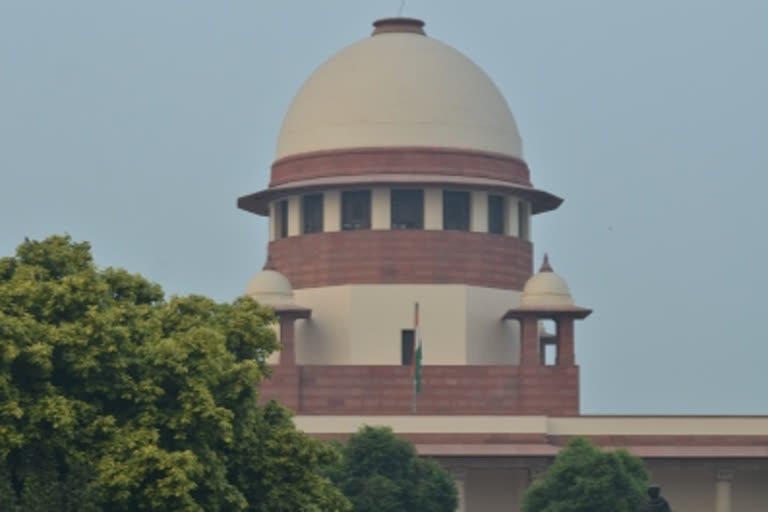New Delhi:The Indian Union Muslim League (IUML) has moved the Supreme Court challenging the Centre's notification inviting non-Muslims belonging to Afghanistan, Bangladesh and Pakistan and residing in 13 districts in Gujarat, Rajasthan, Chhattisgarh, Haryana and Punjab to apply for Indian citizenship.
The interim application argued that the Centre is trying to circumvent the assurance given to the apex court in this regard in the pending petition filed by the IUML challenging the constitutional validity of the provisions of the Citizenship Amendment Act (CAA), 2019.
It said that the Centre assured that staying of the Amendment Act was not necessary since the rules of the Amendment Act had not been framed.
Read:|IUML leaders protest closure of state-run madrasas in Assam
The CAA grants Indian citizenship to non-Muslim minorities -- Hindu, Sikh, Buddhist, Jain, Parsi and Christian -- who migrated to India from Afghanistan, Pakistan and Bangladesh till December 31, 2014, following persecution over their faith.
The fresh plea said the Union home ministry on Friday issued a notification to this effect for immediate implementation of the order under the Citizenship Act 1955 and Rules framed under the law in 2009 even though the rules under the Citizenship Amendment Act (CAA) enacted in 2019 are yet to be framed by the MHA is manifestly illegal and runs counter to the provisions of the Act.
IUML in its plea before the top court said that the Centre had, during the hearing of its plea challenging the constitutional validity of CAA, submitted before the apex court and provided assurance that staying of the Amendment Act was not necessary since the rules of the Amendment Act had not been framed.
"However, the Respondent Union, in a roundabout way, and in an attempt to circumvent the assurance given to this Court, have sought to implement their malafide designs envisaged under the Amendment Act through the recently issued order dated May 28," the plea said.
IUML submitted that if the Centre's notification is implemented and citizenship is given to persons based on their religion, and, thereafter, if this Court strikes down the Amendment Act and rules, whereby the act of providing citizenship based on religion is declared void.
